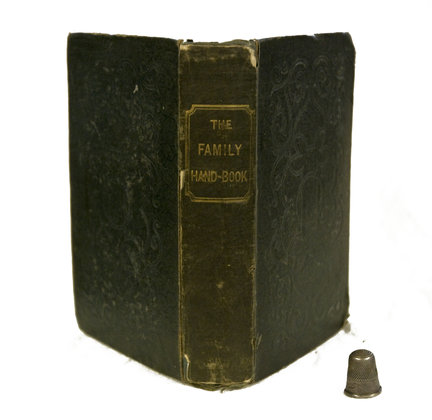Narrative
Knowledge Generation
15. The Family Handbook (London: Parker, 1838) includes practical information in domestic economy, cookery, household management and ‘all other subjects connected with the health, comfort, and expenditure of a family.’ In short, the knowledge is both general and specific. Like dictionaries, portfolios, popular annuls and libraries of useful knowledge, The Family Handbook collects and organizes a vast amount of information on a variety of subjects relevant to upwardly mobile people. In this case, however, the family is recognized as the unit of application. Moreover, middle-class values and characteristics underpin understanding of the home as a site of management, like the body, improved by better knowledge of the subject.
In conclusion, it is not difficult to draw a line from the systematic organization of knowledge in the dictionaries to the scientific management of the middle-class household in the Family Handbook. Such developments began earlier in the eighteenth century, but as literacy and reading, printing and publishing expands the literary evidence for such changes becomes more abundant. At the very least, we can say that the establishment of the middle-class and the upward mobility of the working classes in Britain during and following the Romantic period depended on increased access to knowledge, and that knowledge both general and specific, as fiction and non-fiction, was available to upmarket and downmarket readers in a variety of forms other than poetry and novels, and directly relevant to the varied interests of readers.
David Buchanan, University of Alberta, 2013















